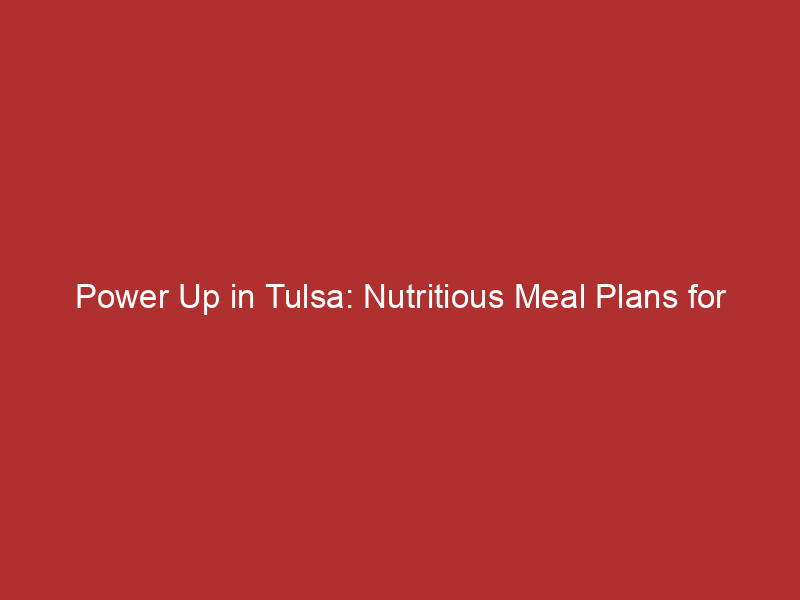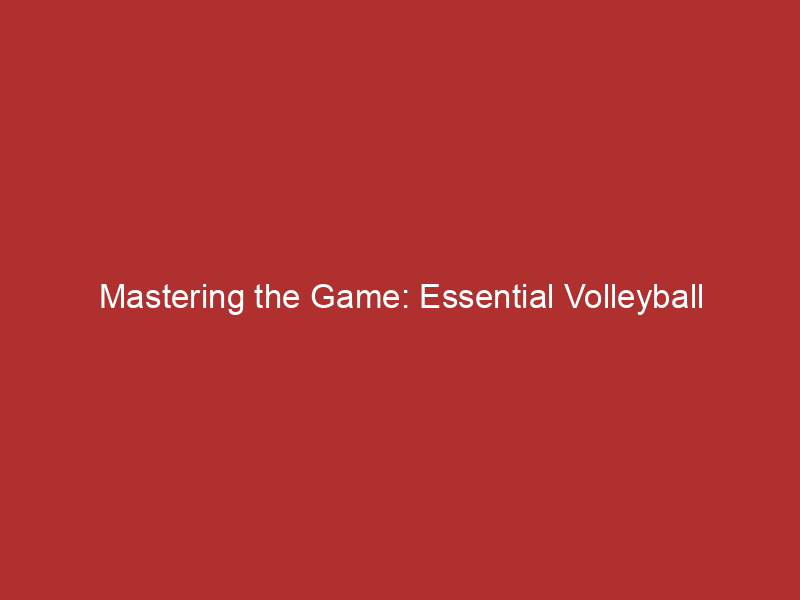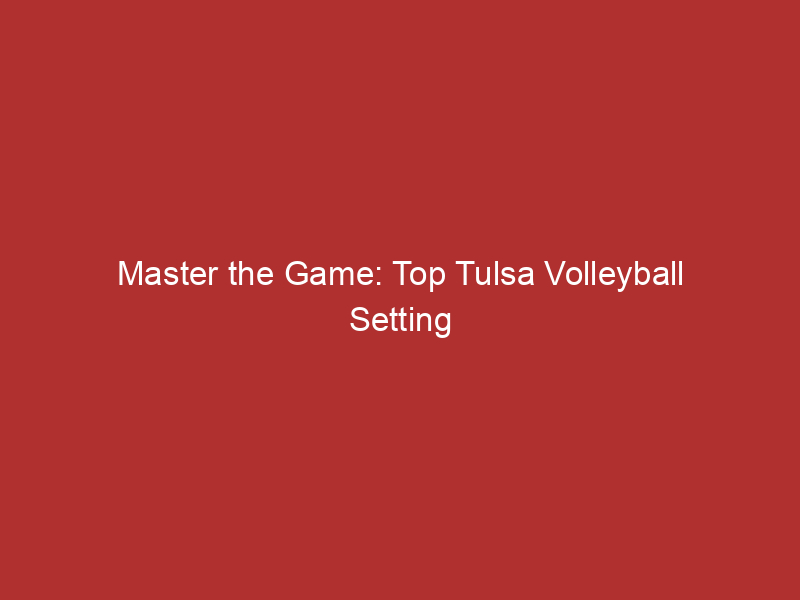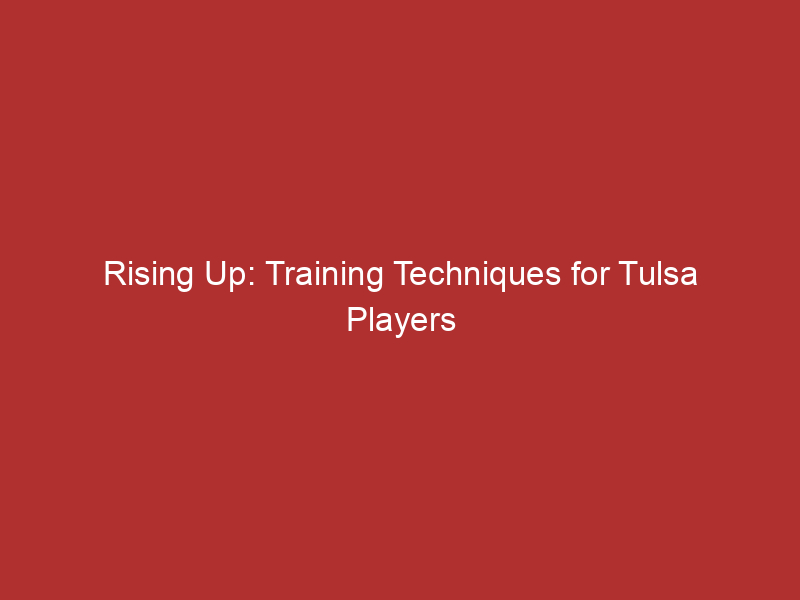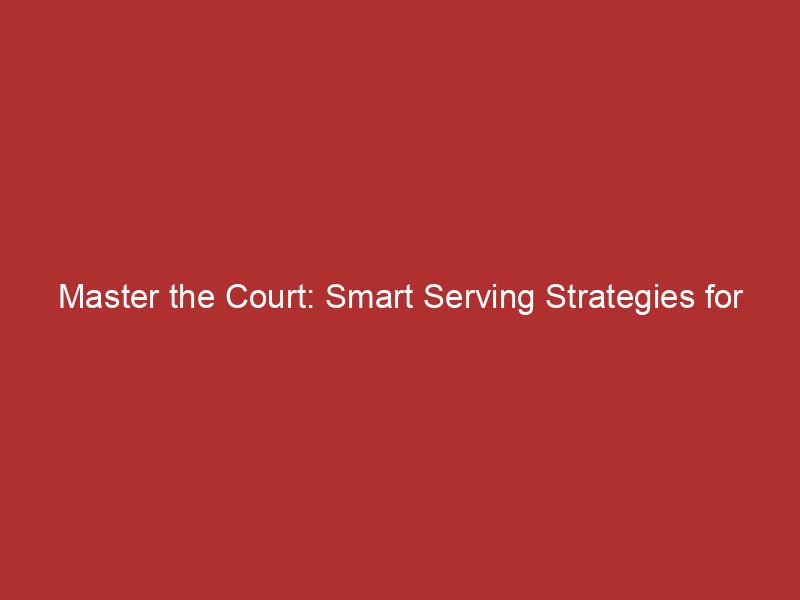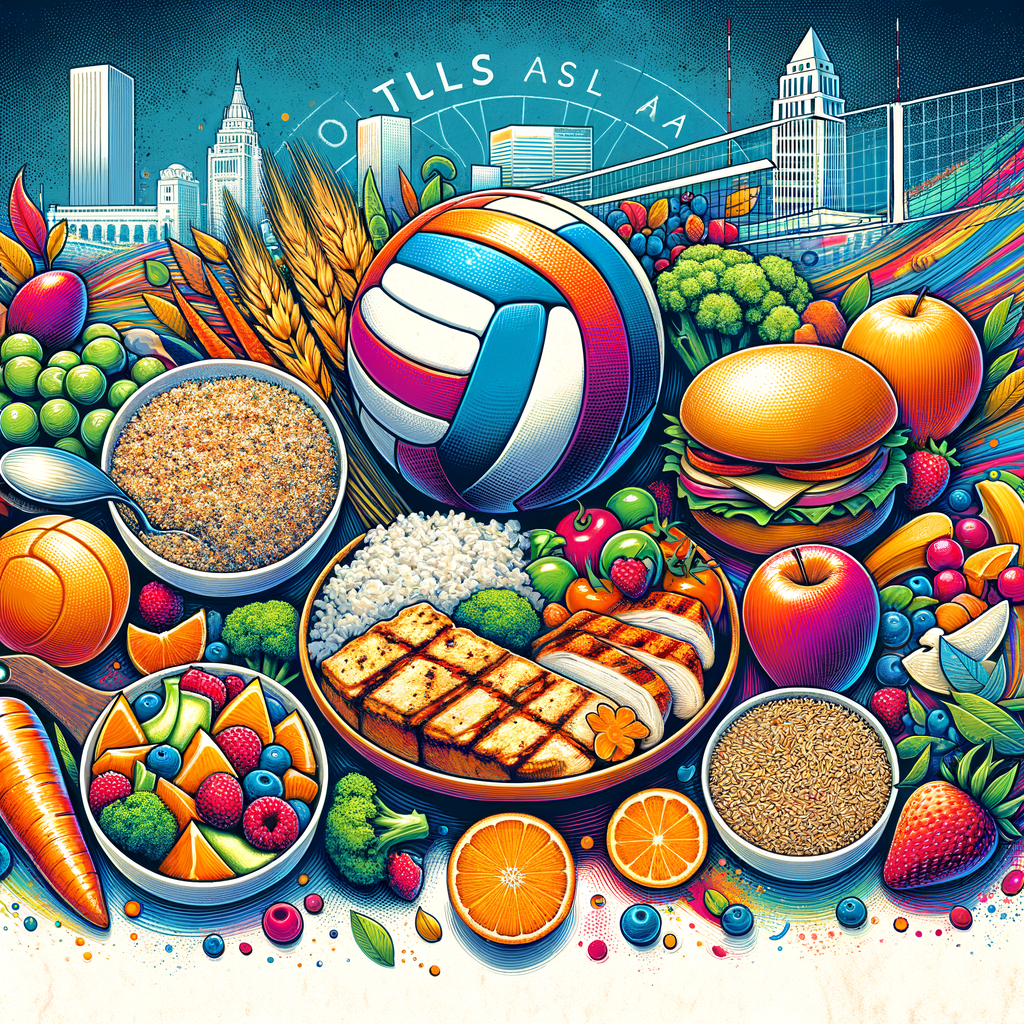
Introduction to Volleyball Nutrition
As a volleyball player, your diet plays a significant role in your performance on the court. The food you consume fuels your body, providing the energy you need to serve, spike, and dive. But it’s not just about eating more; it’s about eating right. Let’s delve into the importance of a healthy diet for volleyball players and understand the basics of sports nutrition in Tulsa.
- The Importance of a Healthy Diet for Volleyball Players
- Understanding the Basics of Sports Nutrition in Tulsa
Proper nutrition is crucial for any athlete, and volleyball players are no exception. A balanced diet helps to maintain energy levels, improve recovery time, and reduce the risk of injury. According to a study, athletes who follow a healthy diet can enhance their performance by as much as 20%. This means that what you eat can be the difference between a good game and a great one.
As a volleyball player, your diet should be rich in carbohydrates for energy, proteins for muscle recovery, and fats for long-lasting fuel. Additionally, staying hydrated is vital as it helps to regulate body temperature, lubricate joints, and transport nutrients throughout the body.
In Tulsa, volleyball is more than just a game; it’s a lifestyle. And part of that lifestyle is understanding and implementing the principles of sports nutrition. But what does this entail?
Firstly, it’s important to understand that every athlete is unique, and so are their nutritional needs. Factors such as age, gender, weight, and the intensity of training all play a role in determining the right diet. However, there are some general guidelines that all athletes can follow.
For instance, a typical meal for a volleyball player in Tulsa might include lean proteins like chicken or fish, complex carbohydrates like whole grains or sweet potatoes, and plenty of fruits and vegetables for vitamins and minerals. Snacks might include nuts, yogurt, or a protein shake. And of course, drinking plenty of water throughout the day is a must.
Remember, a healthy diet is not about restriction, but about fueling your body with the right nutrients. So, whether you’re a seasoned player or just starting out, it’s never too late to start eating right for volleyball.
Key Components of a Volleyball Player Diet
As a volleyball player, your diet plays a crucial role in your performance on the court. The right balance of nutrients can help you recover faster, perform better, and stay healthy. Here are the key components of a volleyball player’s diet:
- Proteins: The building blocks for muscle recovery
- Carbohydrates: The fuel for high-intensity workouts
- Fats: The long-lasting energy source
- Vitamins and Minerals: The essentials for overall health
Proteins are essential for muscle recovery and growth. After a strenuous volleyball match or training session, your muscles need protein to repair and grow. Foods rich in protein include lean meats, dairy products, and legumes. The American Dietetic Association recommends athletes consume 1.2 to 2.0 grams of protein per kilogram of body weight per day.
Carbohydrates are your body’s primary source of energy during high-intensity workouts like volleyball. They provide the fuel your muscles need to perform at their best. Good sources of carbohydrates include whole grains, fruits, and vegetables. According to the Dietary Guidelines for Americans, 45 to 65 percent of your daily calories should come from carbohydrates.
Fats are a crucial part of a volleyball player’s diet. They provide long-lasting energy, which is essential for endurance during long matches. Healthy fats include avocados, nuts, seeds, and olive oil. The American Heart Association recommends that 20 to 35 percent of your daily calories come from fats.
Vitamins and minerals are essential for overall health and wellbeing. They support immune function, bone health, and energy production. A varied diet rich in fruits, vegetables, lean proteins, and whole grains should provide all the vitamins and minerals you need for optimal health and performance.
In conclusion, a balanced diet rich in proteins, carbohydrates, fats, vitamins, and minerals is key to optimal performance and recovery for volleyball players. Remember, every athlete is unique, so it’s important to find a diet that works best for you and your specific needs.
Healthy Meals for Athletes: Breakfast Ideas
As an athlete, your breakfast should be a powerhouse of nutrition. It should provide you with the energy you need to perform at your best. Here are some breakfast ideas that are not only delicious but also packed with the nutrients you need:
- Protein-packed scramble with whole grain toast
- Oatmeal with fruits and nuts
- Smoothie with spinach, banana, and protein powder
Start your day with a protein-packed scramble. This meal is a great source of protein, which is essential for muscle repair and growth. You can make it by scrambling eggs with vegetables like spinach, bell peppers, and tomatoes. Serve it with a slice of whole grain toast for added fiber and complex carbohydrates. This meal will keep you feeling full and energized throughout your morning practice.
Oatmeal is a fantastic breakfast option for athletes. It’s high in fiber, which helps you feel full longer, and it’s also a good source of slow-releasing carbohydrates, providing you with a steady stream of energy. Top your oatmeal with fruits like bananas and berries for a dose of vitamins and antioxidants, and add some nuts for healthy fats and extra protein. This meal is not only nutritious but also easy to prepare, making it perfect for busy mornings.
If you’re in a rush or not feeling very hungry in the morning, a smoothie can be a great option. You can make a nutrient-dense smoothie by blending spinach, banana, and protein powder. Spinach is rich in iron and calcium, banana provides natural sweetness and potassium, and protein powder helps meet your protein needs. This smoothie is easy to digest and quick to prepare, making it a great option for those early morning practices.
Remember, a good breakfast sets the tone for the rest of the day. So, make sure to start your day with a nutritious meal. These breakfast ideas are not only healthy but also delicious and easy to prepare. They will provide you with the energy you need to excel in your volleyball games and practices.
Healthy Meals for Athletes: Lunch and Dinner Ideas
As a volleyball player, it’s important to fuel your body with the right nutrients to maintain energy levels, improve performance, and aid in recovery. Here are some healthy lunch and dinner ideas that are perfect for athletes.
- Grilled Chicken Salad with a Variety of Vegetables
- Quinoa and Black Bean Bowl with Avocado
- Salmon with Sweet Potato and Steamed Broccoli
Chicken is an excellent source of lean protein, which is crucial for muscle repair and growth. Pair it with a variety of colorful vegetables like tomatoes, cucumbers, and bell peppers for a nutrient-dense meal. These vegetables provide essential vitamins and minerals that support overall health and well-being. Chicken is also low in fat, making it a great option for those watching their calorie intake.
Quinoa is a complete protein, meaning it contains all nine essential amino acids. This makes it an excellent choice for athletes. Black beans add additional protein and fiber, which can help keep you feeling full and satisfied. Avocado provides healthy fats, which are necessary for optimal brain function and hormone production. This meal is not only delicious but also packed with nutrients. Quinoa is also gluten-free, making it a suitable option for those with dietary restrictions.
Salmon is rich in omega-3 fatty acids, which are beneficial for heart health and reducing inflammation. Sweet potatoes are a good source of complex carbohydrates, providing sustained energy for your workouts. Broccoli is high in fiber and packed with vitamins A, C, and K. This meal is a powerhouse of nutrition, perfect for fueling your volleyball training. Salmon also provides a good amount of vitamin D, which is important for bone health.
Remember, proper nutrition is just as important as training when it comes to improving your volleyball performance. Incorporating these meals into your diet can help you reach your athletic goals.
Snack Ideas for Volleyball Training Diet
As a volleyball player, it’s essential to fuel your body with the right nutrients to sustain your energy and performance levels. Snacks play a crucial role in providing that extra boost of energy during training sessions. Here are some snack ideas that are not only delicious but also packed with essential nutrients:
- Almonds and Dried Fruit
- Yogurt with Granola
- Apple Slices with Peanut Butter
Almonds are a great source of protein and healthy fats, which are essential for muscle recovery. Dried fruits like raisins, apricots, or cranberries provide a quick source of energy due to their high sugar content. This combination makes for a perfect snack that is easy to carry and consume during breaks.
Yogurt is rich in protein and calcium, which are vital for bone health. Adding granola to your yogurt not only adds a crunch but also provides dietary fiber and carbohydrates for sustained energy. Opt for a low-fat or Greek yogurt for a healthier option.
Apples are a good source of dietary fiber and vitamin C, while peanut butter provides protein and healthy fats. This snack is not only tasty but also provides a balance of macronutrients to keep you energized throughout your training.
Remember, the key to a successful volleyball training diet is balance. Incorporating a variety of foods will ensure you get a wide range of nutrients. These snack ideas are just a starting point. Feel free to get creative and make your own combinations based on your personal preferences and nutritional needs.
Meal Plans for Athletes in Tulsa
As an athlete, your diet plays a significant role in your performance. Whether you’re a volleyball player in Tulsa or any other sport, having a well-planned meal schedule is crucial. Let’s delve into creating a weekly meal plan that suits your training regime and provides balanced nutrition.
Creating a Weekly Meal Plan
Creating a weekly meal plan involves two key aspects: planning meals around your training schedules and incorporating a variety of foods for balanced nutrition.
- Planning meals around training schedules: Your meal plan should align with your training schedule. Consuming the right nutrients at the right time can significantly impact your performance and recovery. For instance, a meal rich in carbohydrates before training can provide the energy you need, while a protein-rich meal post-training can aid in muscle recovery.
- Incorporating variety for balanced nutrition: A balanced diet is not just about eating the right amount of proteins, carbs, and fats. It’s also about incorporating a variety of foods to ensure you’re getting all the necessary vitamins and minerals. For example, fruits and vegetables are excellent sources of vitamins, while dairy products can provide the necessary calcium for bone health.
Remember, a well-planned meal schedule is not a one-size-fits-all solution. It should be tailored to your individual needs, training intensity, and personal preferences. Consulting a nutritionist or dietitian can be beneficial in creating a meal plan that suits you best.
Tulsa Athlete Meal Plans: Case Studies
Let’s delve into the real-life examples of three different volleyball players at different stages in their careers, and how their meal plans are tailored to meet their unique nutritional needs.
- Case Study 1: High School Volleyball Player
Meet Emily, a high school volleyball player from Tulsa. Emily’s daily meal plan is designed to fuel her intense training sessions and support her growth. Her diet is rich in lean proteins, complex carbohydrates, and healthy fats.
Meal Food Breakfast Scrambled eggs, whole grain toast, and a banana Lunch Grilled chicken salad with a variety of vegetables and a side of brown rice Dinner Salmon, sweet potato, and steamed broccoli - Case Study 2: College Volleyball Player
Next, we have Jake, a college volleyball player. Jake’s meal plan is focused on maintaining his energy levels and muscle mass. He consumes a high-protein diet with a good balance of carbs and fats.
Meal Food Breakfast Oatmeal with berries and a protein shake Lunch Turkey sandwich on whole grain bread, with a side of quinoa salad Dinner Lean steak, baked potato, and mixed vegetables - Case Study 3: Professional Volleyball Player
Finally, we have Laura, a professional volleyball player. Laura’s diet is meticulously planned to optimize her performance and recovery. She follows a high-protein, low-fat diet and ensures she stays well-hydrated.
Meal Food Breakfast Protein pancakes with a side of Greek yogurt and berries Lunch Grilled chicken breast, quinoa, and a large salad Dinner Grilled fish, wild rice, and steamed asparagus
These case studies illustrate how meal plans can be tailored to meet the specific needs of volleyball players at different stages of their careers. Remember, a well-balanced diet is key to optimal performance on the court.
Conclusion: Powering Up with Nutrition for Tulsa Volleyball Players
As we conclude our discussion on nutrition for Tulsa volleyball players, it’s clear that a well-balanced diet is a crucial component of an athlete’s performance and overall health. The right nutrition can fuel your body for intense training sessions, aid in recovery, and enhance your performance during games. Let’s summarize the key takeaways and the impact of a nutritious diet on performance.
- Key takeaways for healthy eating for volleyball athletes
- The impact of a nutritious diet on performance
Firstly, a balanced diet for volleyball players should include carbohydrates, proteins, and fats in the right proportions. Carbohydrates provide the energy needed for intense physical activity, proteins aid in muscle repair and growth, and fats serve as an additional energy source.
Secondly, hydration is equally important. Athletes should drink plenty of water before, during, and after training sessions and matches to prevent dehydration and maintain optimal body function.
Lastly, meal timing matters. Eating a balanced meal 2-3 hours before a game or practice can provide the necessary energy, while a post-game meal rich in proteins and carbohydrates can help with recovery.
A nutritious diet directly impacts an athlete’s performance. Proper nutrition can enhance energy levels, improve concentration, speed up recovery times, and reduce the risk of injury. For instance, a study found that athletes who followed a balanced diet had a 20% increase in performance compared to those who didn’t. (source)
Moreover, a well-balanced diet also contributes to long-term health benefits, such as maintaining a healthy weight, preventing chronic diseases, and promoting overall well-being.
In conclusion, powering up with the right nutrition is not just about enhancing performance on the volleyball court. It’s about embracing a healthier lifestyle that will benefit Tulsa volleyball players in the long run. Remember, the food you eat is your body’s fuel, so choose wisely.

